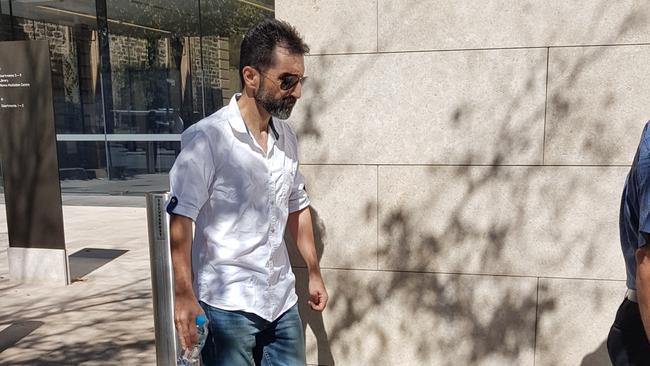Iranian-born refugee Payam Saadat is sues over detention at Baxter and Curtin centres
A man is suing the government and the companies that run its detention centres for negligence over a psychiatric injury, a court has heard.

SA News
Don't miss out on the headlines from SA News. Followed categories will be added to My News.
When an Iranian-born refugee complained his mental health was deteriorating while in detention, he was effectively placed in solitary confinement which further exacerbated his illness, a court has heard.
Payam Saadat, now 45, is suing the Commonwealth Government, and four companies who ran the facility, for negligence over the psychiatric injury he suffered while he was in detention at Baxter Immigration Reception and Processing Centre, near Port Augusta, before he was released on a visa in April 2005.
Opening a Supreme Court trial on Tuesday, Hugh Abbott SC, said Mr Saadat had “no mental problem whatsoever” before he fled Iran and arrived in Australia via boat from Indonesia.
“It’s alleged that while he was at Baxter he suffered a psychiatric injury or the alternative that he had begun to suffer one while at Curtin and that became much worse at Baxter,” Mr Abbott said.
On arrival in Australia Mr Saadat was first taken to Darwin before being transferred to Curtin Immigration Reception and Processing Centre in the Kimberley region of Western Australia in December 2000. He was moved to Baxter after it opened in 2002.
Mr Saadat does not dispute his detention, which he agrees was lawful, but Mr Abbott told the court it was “a cause of his mental injury or the sole cause” of the illness which he continues to suffer.

Mr Saadat was tortured, imprisoned and physically abused in his homeland because of his religious beliefs. He fled to Indonesia where he boarded a boat and endured a traumatic journey to Australia.
Mr Abbott said given Mr Saadat’s background, the Commonwealth were “on notice” that he was a vulnerable person and “should have treated him more carefully”.
“The Commonwealth could have chosen any system of detention it liked but the one it chose and subjected Mr Saadat to was one we say was almost guaranteed to cause psychological injury or make any pre-existing vulnerability crystallise into one,” he said.
He said issues with Mr Saadat’s detention included the harsh desert weather conditions, overcrowding, barriers to arrange for visitors and guards treating detainees like prisoners rather than detainees.
Documents previously filed with the court had revealed Mr Saadat was subjected to solitary confinement, 24-hour fluorescent lighting and threats from guards during this time in detention.
He said detainees queued for basic facilities including showers, laundry, telephones and sports equipment. They were given “boring” food, faced inflexible rules and were not supplied with newspapers.
“They were isolated from the outside world, their contact with family and friends at home were limited,” Mr Abbott said.
He said medical services were inadequate, and despite Mr Saadat’s background and complaints of growing anxiety and stress and self harm attempts he did not see a psychiatrist during his nearly four and a half years in detention.
Mr Abbott said after any self harm attempt detainees were transferred to a ‘Management Unit’ for observation, which effectively placed detainees in solitary confinement and further harmed their mental health.
“The consequence of telling anyone that you were in such a state of mind that you were going to harm yourself was that you would get put under observation like that and your liberty restricted,” he said.
“The natural affect of that was to discourage a detainee from saying, admitting, that kind of feeling.”
He said Mr Saadat had told a nurse he felt okay, just to get out of the unit because it had made him feel worse.
Mr Abbott said the centres focused on security rather than the wellbeing of detainees.
“It was obvious, we say, that the detention system wasn’t working, it was causing harm to those people and they didn’t do enough about it,” he said.
The trial is the first of many lawsuits from refugees suing over the conditions of detention.
Outside court, Mal Byrne SC, said Mr Saadat was “understandably anxious but keen to tell his story” in court.
“Our client has been waiting nearly 20 years for his day in court and that day has finally arrived,” he said.
The trial, before Justice Tim Stanley, is expected to run for 12 weeks.



